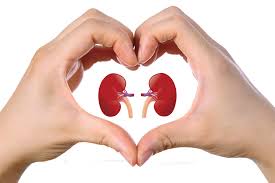
Polycystic kidney disease (PKD or PCKD, also known as polycystic kidney syndrome) is a cystic genetic disorder of the kidneys.
Polycystic kidney disease (PKD) is a genetic disorder characterized by the growth of numerous cysts in the kidneys. The kidneys are two organs, each about the size of a fist, located in the upper part of a person’s abdomen, toward the back. The kidneys filter wastes and extra fluid from the blood to form urine. They also regulate amounts of certain vital substances in the body. When cysts form in the kidneys, they are filled with fluid. Polycystic kidney disease cysts can profoundly enlarge the kidneys while replacing much of the normal structure, resulting in reduced kidney function and leading to kidney failure.
When Polycystic kidney disease causes kidneys to fail—which usually happens after many years—the patient requires dialysis or kidney transplantation. About one-half of people with the most common type of Polycystic kidney disease progress to kidney failure, also called end-stage renal disease (ESRD).
Polycystic kidney disease can also cause cysts in the liver and problems in other organs, such as blood vessels in the brain and heart. The number of cysts as well as the complications they cause help doctors distinguish Polycystic kidney disease from the usually harmless “simple” cysts that often form in the kidneys in later years of life.
Etiology
- Genetic disorder.
- Inheritance: autosomal dominant.
Types
- Autosomal dominant Polycystic kidney disease is the most common, inherited form. Symptoms usually develop between the ages of 30 and 40, but they can begin earlier, even in childhood. About 90 percent of all PKD cases are autosomal dominant Polycystic kidney disease.
- Autosomal recessive Polycystic kidney disease is a rare, inherited form. Symptoms of autosomal recessive Polycystic kidney disease begin in the earliest months of life, even in the womb.
- Acquired cystic kidney disease (ACKD) develops in association with long-term kidney problems, especially in patients who have kidney failure and who have been on dialysis for a long time. Therefore, it tends to occur in later years of life. It is not an inherited form of Polycystic kidney disease.
SYMPTOMS of Polycystic kidney disease
- Dull aching in loins.
- Vague abdominal pain.
- Frequent urination.
- Haematuria.
- Headache.
- Drowsiness.
- Anorexia.
SIGNS
- Anaemia: moderate to severe.
- Blood pressure: raised.
- On palpation abdomen
- Enlarged irregular kidneys.
- Large knobby renal masses.
- Enlarged polycystic liver (50% cases).
COMPLICATIONS
- Recurrent urinary tract infection.
- Renal calculi.
- Chronic renal failure.
GENERAL MANAGEMENT
- Control of blood pressure.
- Plenty of fluids.
- Low protein diet.
- Correction of anaemia (due to haematuria).
- Prevention & prompt treatment of infection.